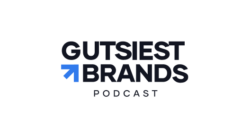Colgate-Palmolive is a powerhouse brand we’re always happy to connect with, including recently at ESOMAR’s Insights Festival. I sat down with Richard Thorogood, VP of Consumer and Market Insights at Colgate-Palmolive, to talk through the state of consumer insights in the time of COVID-19, the role of agility and innovation, and the future of insights.
ESOMAR’s Insights Festival took place at the same time as the launch of Toluna Start — the industry’s first end-to-end, real-time consumer intelligence platform. Richard’s perspective was eye-opening, and I’m happy to deliver some of the key takeaways here.
Q&A:
- Frédéric Petit, Toluna (FP): A lot of people think about agility in terms of speed only, at any cost, even quality. It’s about adaptability. How has Colgate adapted to the need for accelerated agility?
- Richard Thorogood, Colgate-Palmolive (RT): “Agile” is not a euphemism for quick and cheap. It’s about the ability to move very quickly through a prepared way. Agile is about having a range of tools or a platform to gain learning very quickly, to gain feedback from people and quickly turn it around. It’s about having informed solutions and appropriate tools and techniques — not just who can do it the quickest and cheapest.
- FP: I agree. Agile is speed, but it’s speed with preparation, which is the foundation of quality. Quality and methodology at scale is true agility.
- RT: Being agile is about having designed solutions that allow you to move quickly, but also with great accuracy. There has to be a real, imminent focus on quality. That’s why our partnership with Toluna and Harris Interactive has evolved – because they’re grounded in quality as a starting point. You’ve found a way to deliver quality at speed.
- FP: We talk about consumer insights, and we both value the focus on the person, the individual, the community — not just on the consumer. At Toluna, one of our mottos is to be in touch with people and not consumers only. Can you speak to this?
- RT: It really is a personal passion point in trying to remove the word “consumer” from the industry that we’re in. COVID and other situations emphasize just how important it is to get beyond those very small moments when people engage with our brands and products. 99% of people’s lives are not as a Colgate consumer. We have to think about the culture we all live in, the family, the opportunities, the hopes and aspirations, and then we connect back to how our brands deliver against the much bigger needs. We have to make sure we can talk to and relate to people’s needs, and help support them. The more we can think about people-centric and people insights and not the word “consumer,” the better for everybody.
- FP: Let’s talk about the need for innovation during this period. How has this changed for you?
- RT: Innovation is our life blood. In the past, the focus on the need for hygiene and antibacterial hadn’t been so intense. We were very quickly able to gain learning about what people were looking for. We found that the crisis has accelerated people’s interest in the environment and green. The ability to learn that from multiple countries very quickly allowed us to make decisions rapidly and ensure we were fueling our growth and innovation through the most current knowledge that we could gain. Sharing that information quickly through systems is incredibly important.
- FP: I’d like to go back to people. It’s been a wild ride in terms of the pressure and duress on people, the uncertainty, and a possible recession. How do you adapt?
- RT: Recession isn’t about making a cheap product with an inferior formulation. What we have learned is that many people on lower incomes rely upon better quality products, sometimes because they can’t actually visit the dentist as often as they’d like, so they want a toothpaste that’s going to give them the maximum amount of protection. Maybe they can’t afford to have their teeth whitened professionally, so they’re looking for whitening solutions. When it comes to recession, we have historical knowledge, but it’s about understanding the trade-offs that people will have to make. It’s about changing who you’re talking to and being prepared to act upon what you hear, but not assuming unemployment means you need to drop your price. There are still many opportunities to drive growth and incremental value, even in recession.
- FP: What else can you say about the need to engage more targeted audiences to understand their needs better on a consistent basis?
- RT: Ideally, regardless of the circumstances, you’d be talking to a broad range of people. We need to spend more time talking to the people on the outside and learn from that. Yes, it’s important to talk to people who are struggling during a recession, but we should be doing that all the time. As companies and brands, we need to talk to people with unique needs or problems they’re facing all the time. And when we face a recession, we’re ready to act upon that knowledge without the need to start from scratch.
This moment in time has emphasized the need to shift from consumer to people thinking, and really understand the bigger picture. And fortunately, technology is opening new doors for meaningful connection, quality insights, and agile operations. Thank you, Richard, and ESOMAR for a forward-thinking discussion.



 Back to Blog
Back to Blog

